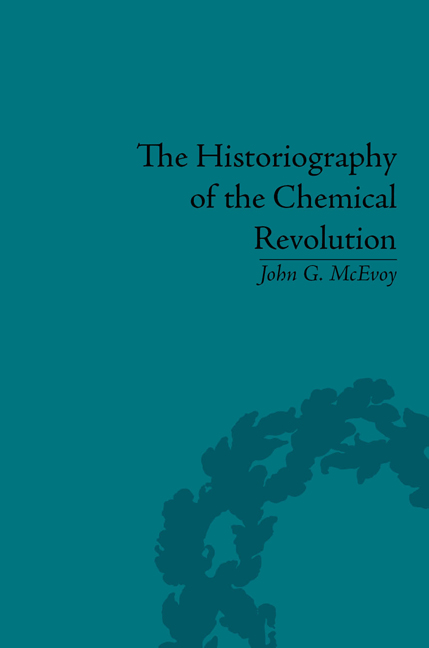Book contents
- Frontmatter
- CONTENTS
- Dedication
- Acknowledgements
- Preface
- Introduction: The Philosophical and Historiographical Terrain
- 1 Positivism, Whiggism and the Chemical Revolution
- 2 Postpositivism and the History of Science
- 3 Postpositivist Interpretations of the Chemical Revolution
- 4 From Modernism to Postmodernism: Changing Philosophical Images of Science
- 5 The Sociology of Scientific Knowledge and the History of Science
- 6 Postmodernist and Sociological Interpretations of the Chemical Revolution
- 7 The Chemical Revolution as History
- Notes
- Works Cited
- Index
3 - Postpositivist Interpretations of the Chemical Revolution
- Frontmatter
- CONTENTS
- Dedication
- Acknowledgements
- Preface
- Introduction: The Philosophical and Historiographical Terrain
- 1 Positivism, Whiggism and the Chemical Revolution
- 2 Postpositivism and the History of Science
- 3 Postpositivist Interpretations of the Chemical Revolution
- 4 From Modernism to Postmodernism: Changing Philosophical Images of Science
- 5 The Sociology of Scientific Knowledge and the History of Science
- 6 Postmodernist and Sociological Interpretations of the Chemical Revolution
- 7 The Chemical Revolution as History
- Notes
- Works Cited
- Index
Summary
In accord with the arationality assumption, postpositivist historians of the Chemical Revolution rejected any attempt to locate ‘the causative factors in Lavoisier's work’ in the socioeconomic conditions of eighteenth-century France. According to Carleton Perrin, for example, the Chemical Revolution involved a ‘conceptual breakthrough’ which ‘did not follow inversions of polarity in the changing political climate’. Guerlac linked the Chemical Revolution to the unfolding of an ‘internal history’, claiming that the ‘outstanding feature of Lavoisier's Chemical Revolution’ involved the emergence of chemistry from its ‘industrial and practical background’ as ‘an autonomous discipline, a body of theoretical knowledge’ with ‘its own theoretical problems, its own methods of thought and inner logic’. In a similar vein, Marco Beretta emphasized the problems involved in drawing ‘any univocal conclusion on the relation between science and politics’ in the Chemical Revolution. Treating the ‘social context’ as ‘peripheral’ to the unfolding ‘logic’ of the Chemical Revolution, postpositivist scholars examined specific concepts and theories in relation to particular research programmes, disciplinary research traditions and, in some cases, broader cultural and intellectual themes and movements. The theoreticist orientation of postpositivism also downplayed the role of new observations and experimental evidence in the development of science, leading Freddy Verbruggen to claim that ‘the phlogiston controversy, and the disagreement between, for instance, Priestley and Lavoisier, was not a matter of the ‘observation’, but of the INTERPRETATION of chemical processes’.
- Type
- Chapter
- Information
- The Historiography of the Chemical RevolutionPatterns of Interpretation in the History of Science, pp. 89 - 126Publisher: Pickering & ChattoFirst published in: 2014



